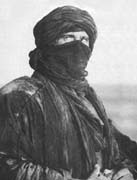Terry Hayes on Max
 "When I first spoke to Mel, I said, 'Look, don't take this the wrong way, but I'll tell you what the film's [Mad Max III] story really is.' He said, 'What's that?' And I said, 'Listen mate, it's Jesus in black leather.'"
"When I first spoke to Mel, I said, 'Look, don't take this the wrong way, but I'll tell you what the film's [Mad Max III] story really is.' He said, 'What's that?' And I said, 'Listen mate, it's Jesus in black leather.'"
"I don't know whether messianic is the right word. Hero stories all have that messianic quality to them, but this wasn't my aim here. It just so happens that messianic stories are hero stories, and this is a hero story, so obviously they have a common background and genealogy. Lurking within us all, there's a hero. I'm not talking about doing brave acts. There's plenty of courageous people. I'm talking about people who make a real journey."
"That's what the hero stories indicate to us, that we all have the potential to grow, to evolve into something else, to find the good in ourselves. I'm uncertain it's whether or not you believe in religion, God, or any of those things, but, to a larger extent, that's the currency of the story of, say, Jesus, an ordinary guy, a carpenter, who maybe isn't the son of God, but lays down his life for something. Now, that's a real journey for a character, an ordinary man who does something extraordinary. And, of course, that's the journey of Max. He starts as an ordinary man, wandering in the wasteland, and ends doing something absolutely extraordinary.
"This story couldn't be a hero story, if Max didn't start off as an ordinary man. It would just be about some extraordinary guy. That's the problem I have with, say, Conan [the Barbarian]. Arnold Schwarzenegger looks anything but ordinary. Those films obviously have an audience, but that's not my interest. The wonderful thing, and why I have an interest in telling my sort of stories, is that, within all of us, there's the potential to be extraordinary. That's why hero stories have such a currency and survive, told and retold in different guises. And that's why audiences go along and listen or watch, because it touches that note in them, of what you can be."

 "When I first spoke to Mel, I said, 'Look, don't take this the wrong way, but I'll tell you what the film's [Mad Max III] story really is.' He said, 'What's that?' And I said, 'Listen mate, it's Jesus in black leather.'"
"When I first spoke to Mel, I said, 'Look, don't take this the wrong way, but I'll tell you what the film's [Mad Max III] story really is.' He said, 'What's that?' And I said, 'Listen mate, it's Jesus in black leather.'"